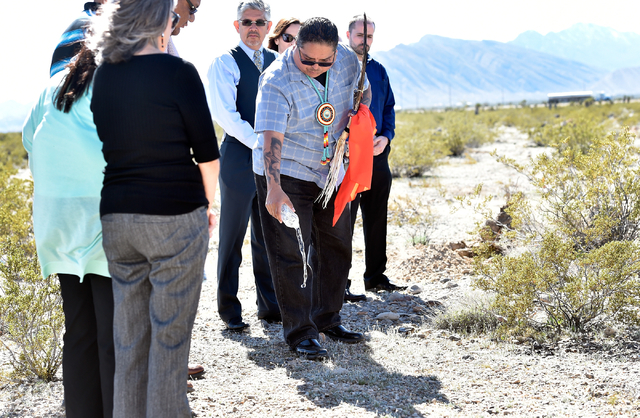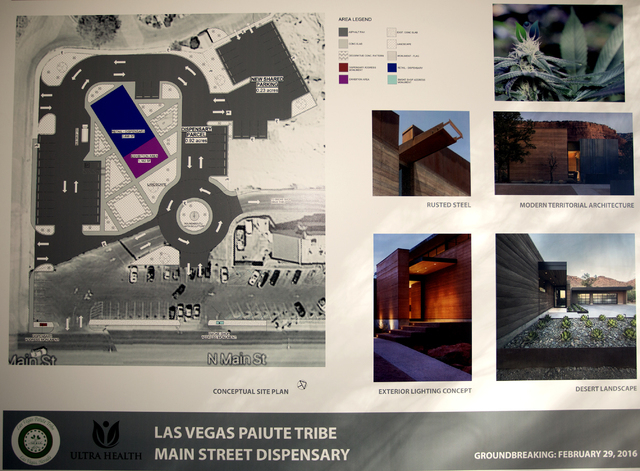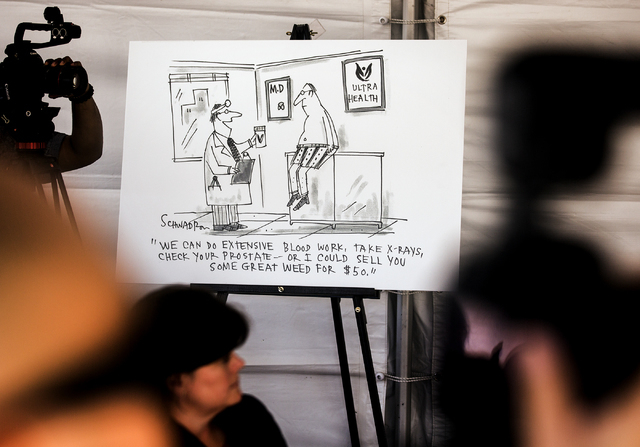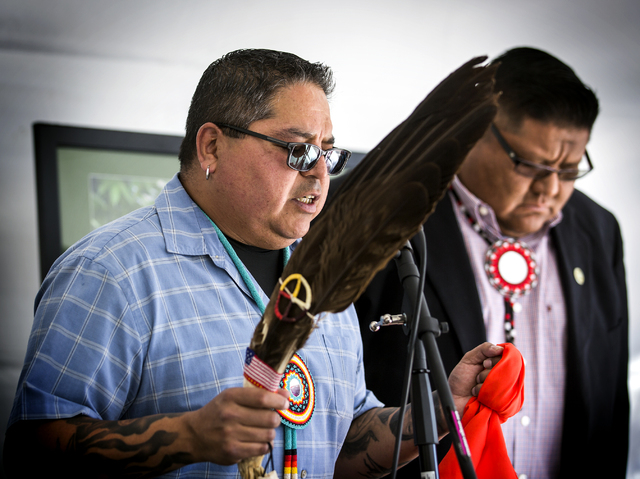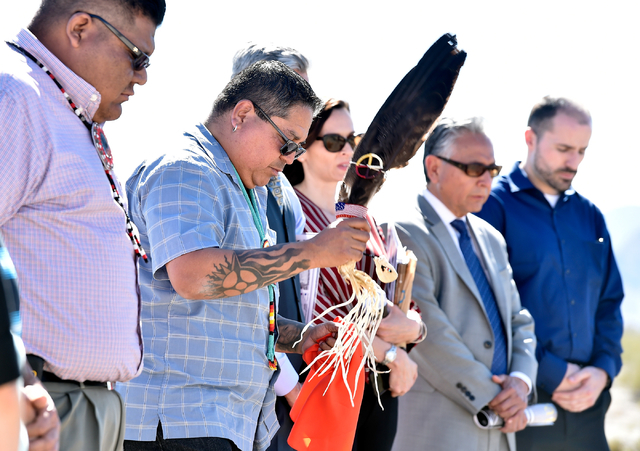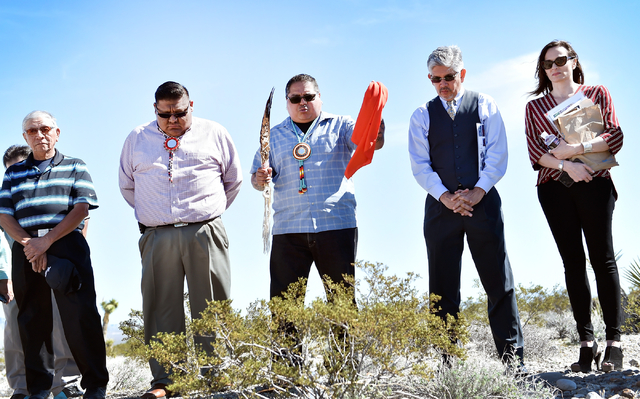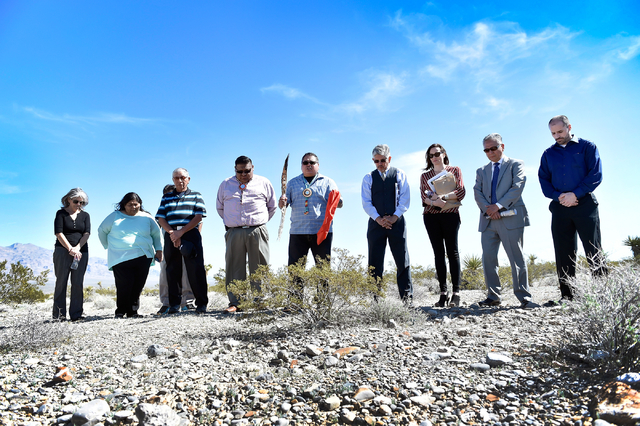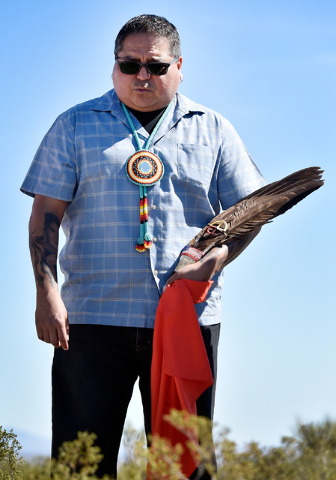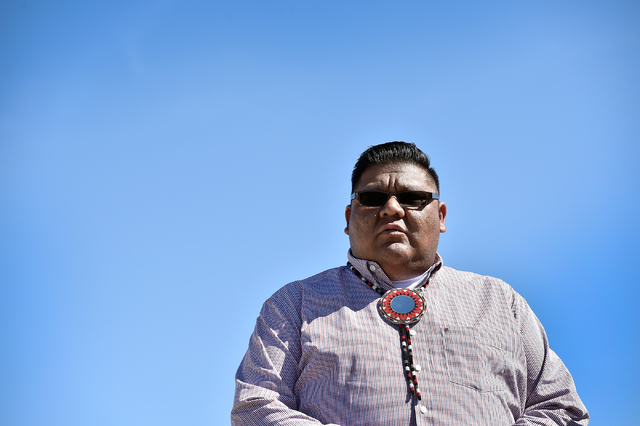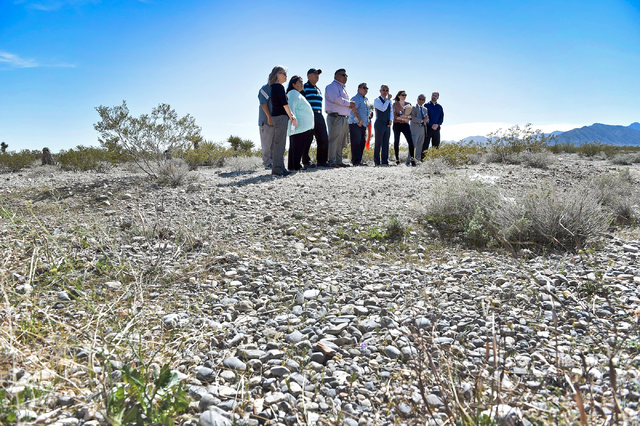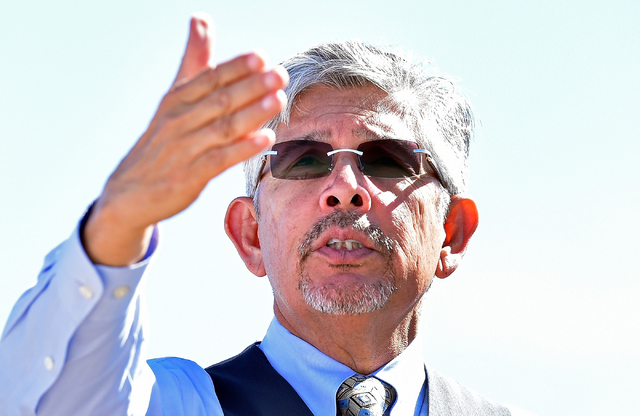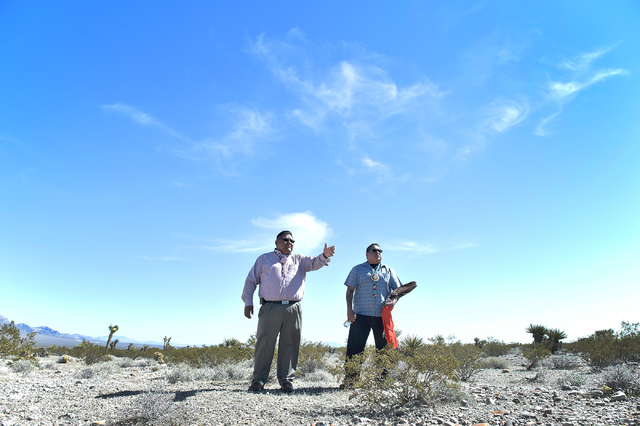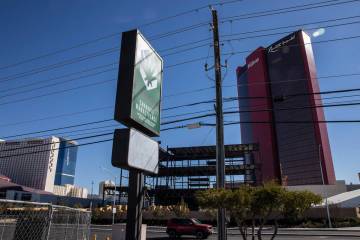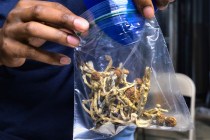Las Vegas Paiutes announce plans to build medical pot dispensaries
The Las Vegas Paiute Tribe is primed to open the state’s first medical marijuana facility on Native American lands.
Right next to Downtown Las Vegas.
Tribal Chairman Benny Tso on Monday announced the tribe’s plans to jump into the Southern Nevada medical marijuana industry full-bore this year.
The tribe partnered with New Mexico-based medical marijuana company Ultra Health to build the facility. Ultra Health operates six other facilities in Arizona and New Mexico.
Plans call for a 3,000-square-foot dispensary to be built just minutes from the heart of Downtown Las Vegas on the tribe’s land near Main Street and Washington Avenue.
An 84,000-square-foot production facility and a 10,000-square-foot production center will be built on the Snow Mountain Reservation near the northwestern edge of the Las Vegas Valley, Tso said. The production center will also operate as a satellite dispensary. The tribe operates the Las Vegas Paiute Golf Club Resort, which includes a casino, on the reservation as well.
The group ceremonially broke ground at both locations Monday. Ultra Health President and CEO Duke Rodriguez said the $5 million project will be done by the end of 2016.
Rodriguez, who said he is in talks with over 20 other tribes across the Southwest, predicted that medical marijuana will be a game-changer for Native American business.
“I’m a big believer that cannabis in America on tribal lands will be bigger than gaming,” Rodriguez said.
Talks about opening a medical cannabis joint on tribal lands started almost immediately after the Nevada Legislature approved the licensing of such facilities in 2013, Tso said.
Tso said the talks were more like jokes at first but quickly turned into serious discussions.
The group eventually settled on Ultra Health after Rodriguez sold the tribe on the science and medicinal benefits of cannabis, Tso said. Rodriguez said he had been in contact with the tribe for nearly 14 months before the plans were announced.
While the company will be operating in Southern Nevada, it won’t necessarily have to follow the same set of guidelines laid out by the state and local jurisidicitons.
Medical marijuana dispensaries are heavily regulated in Nevada, with standards in place for nearly every aspect of the process from cultivation to sale. The state limits the number of licensed dispensaries to 66.
But as a sovereign state that governs itself, the Paiutes get to do things a bit differently.
By entering into a partnership with the tribe, Ultra Health did not have to endure the same rigorous application process as other dispensaries in Las Vegas and Clark County.
But that’s where the differences will stop, according to Tso.
“We’re going to follow the same state guidelines as everyone else,” he said.
Rodriguez said the dispensary could easily expand its client base later if the state approves recreational sale and use of marijuana.
Nevadans voted in favor of legalized recreational use in 2014, but the Legislature did not act on the bill, sending it back to voters. If the measure is approved again by voters in November, recreational use will become legal.
“The Paiute nation would be well postured to participate in that,” Rodriguez said.
Tso said he wants the dispensary to become a staple in the medical field and believes the venture will be a boon for the 56-member tribe.
“Economically I think it’s going to be a huge step forward,” Tso said.
Once built, the Main Street dispensary will be one of the closest to the downtown tourist sector. And with the recent implementation of reciprocity, meaning Nevada will accept medical marijuana cards from other states, Rodriguez said he expects the facility to be a big tourist draw.
At least one dispensary near downtown is glad to see expansion of the cannabis industry, even if it means a little competition.
Michael Jameson, manager and co-owner of Las Vegas Releaf, said he would welcome the tribal dispensary “with open arms,” and will reach out to them as they near their opening.
“We’re just trying to improve the lives of our patients,” Jameson said. “We hold no ill will towards them.”
Rodriguez said he expects roughly 50 new jobs between the three facilities, eventually growing that number to exceed 100 as the operation blooms.
Tso said those jobs will first be advertised to tribal members before being opened to outside applications.
Review-Journal writer Sandra Chereb contributed to this report. Contact Colton Lochhead at clochhead@reviewjournal.com. Find him on Twitter: @ColtonLochhead.



